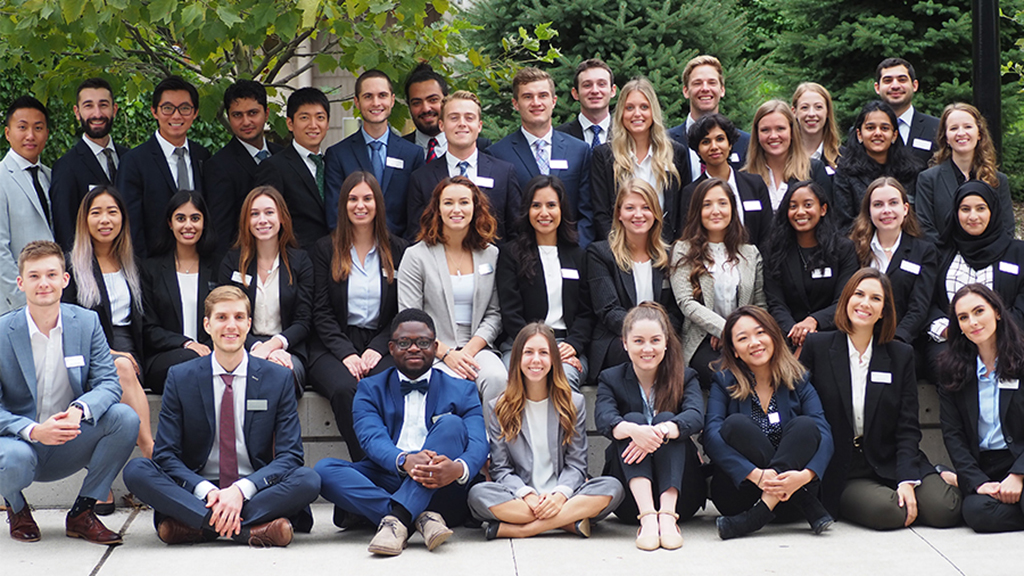Profile:
Master of Science in Sustainability Management Program Co-op Program
The Master of Science in Sustainability Management (MScSM) Program is an interdisciplinary Program focusing on the intersection of science, business and community.Real-world learning and experiences are key components of our program design. Students complete a full 4-month co-op term in their chosen field of interest midway through their degrees, enabling them to put their coursework to use. This work term also enables them to explore sustainability in a given sector or space before returning to studies and choosing electives to fill in their knowledge gaps.

Program Details
Instructor / Program Coordinator(s):
Professor Shashi Kant, Program Director, Institute for Management & Innovation, University of Toronto Mississauga and Claire Westgate, Placement and Employer Relations Manager, Master of Sustainability Management Program, University of Toronto Mississauga
Profile(s):
External Partners Faculty & Staff Students
Division:
University of Toronto Mississauga
Benefits to Students:
When students begin their studies in MScSM, they are often clear about one thing: that they would like to play a role in ensuring that the world moves in a positive direction from a sustainability perspective. The breadth and depth of real-world exposure that the students have enables them to choose their career path; or what levers they will pull, as individuals and as a group, to make sustainable and lasting change. Students gain core skills such as business writing, presentations, leadership and group dynamics – but they also gain significant and niche industry knowledge. Students learn how to think in an interdisciplinary, cross-functional way, and tackle complex problems with a balanced approach. Further, they learn first-hand how to navigate the complexities of the world outside academia, and as a result, are very well equipped to move quickly into their industry of choice upon graduation.
Benefits to External Partners and the Community:
MScSM’s approach to engaging students with the world outside the academic classroom has a significant ripple effect into the community. Our students’ work contributes directly to the community: whether it’s by creating a sustainability strategy for a growing small business in Canada, to helping write policy relating to natural resources for the Government, to creating research on gender diversity on Boards in Canada, our student’s projects are utilized regularly by our industry partners to make positive change. The MScSM Program design also allows for the community to engage in meaningful discourse, project creation and implementation relating to sustainability, contributing to what is affectionately known as the “MScSM Sustainability Family”.
Benefits to the University:
At IMI, the MScSM contributes a range of partnerships across organizations and disciplines to a vibrant co-op and work integrated learning system among the professional Master’s degrees offered. Placement Managers meet regularly, sharing best practices, and facilitating cross-Program placement and learning opportunities. The students themselves work effectively across Programs in case competitions and in a Graduate Student Council.
Information for Interested Students:
To learn more about the Master of Science in Sustainability Management Co-op Program, visit the MScSM page.
Advice for Faculty and Staff Interested in Creating a Similar Experiential Learning Opportunity:
Developing a co-op program, particularly from scratch and in as diverse an area as sustainability management, requires thoughtfulness in planning, and appropriate resources to support the students through their educational journey. We have found it useful to run a range of in-house professional development sessions and co-op preparation sessions, paired alongside a regular industry speaker series. We have also found that good evaluations at both the mid-point and final-point of a co-op term including a self-reflection study have been helpful to secure solid student learning. An in-person site visit can help the student piece together his or her learning, celebrating successes and planning for overcoming challenges. Finally, we have found a robust coursepack to support the co-op, and subsequent full-time job search, to be utilized regularly and widely by our students.
Master of Science in Sustainability Management Program, Class of 2020 (Photo courtesy of MScSM Program Staff)
Details
Partnership Based
Curricular
Paid
